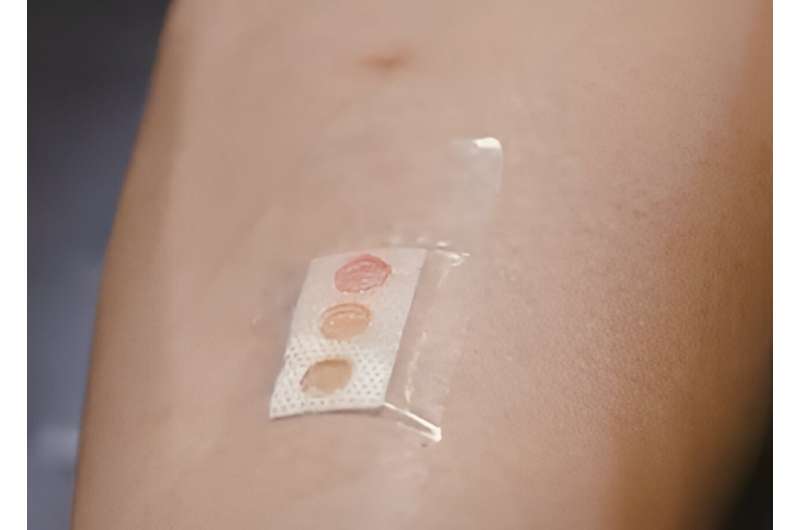Human sweat contains biomarkers such as glucose, lactate and urea that indicate various health conditions and can be collected in a non-invasive and painless manner, making it ideal for daily monitoring, said the team of NTU researchers at the School of Electrical and Electronic Engineering (EEE).
Diabetic patients typically use an invasive finger prick test to self-monitor blood glucose levels. Patients have to prick their fingers to collect a small drop of blood on a strip before inserting it into a portable glucose meter for a reading. An alternative is sensor-based monitoring devices, which are expensive and rigid and must be attached to the patient’s skin over prolonged periods.
By encapsulating a microlaser in liquid crystal droplets and embedding the liquid within a soft hydrogel film, the NTU team created a compact and flexible light-based sensing device—like a plaster which can provide highly accurate biomarker readings within minutes.

